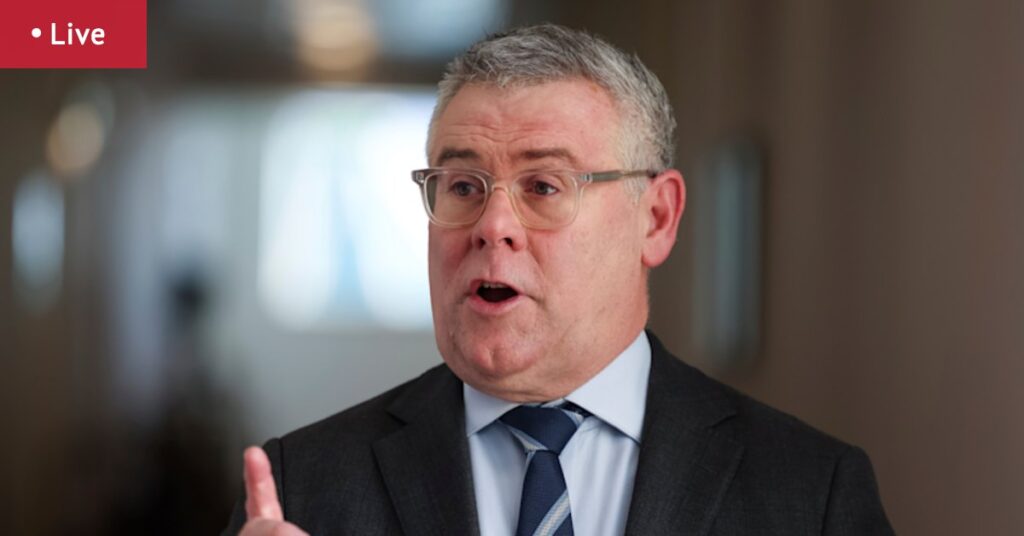
Fifty of the 303 schoolchildren abducted from a Catholic school in north-central Nigeria have managed to escape captivity and are now safely reunited with their families. This development was confirmed by the school authority on Monday AEDT, coinciding with Pope Leo XIV’s call for the immediate release of those still missing.
The schoolchildren, aged between 10 and 18, made their escapes individually over the course of Friday and Saturday. The Most Reverend Bulus Dauwa Yohanna, chairman of the Christian Association of Nigeria in Niger state and the owner of the school, provided this information in a statement. “We were able to ascertain this when we decided to contact and visit some parents,” Yohanna stated.
Despite the successful escape of 50 children, a total of 253 schoolchildren and 12 teachers remain in the hands of the kidnappers. As of now, no group has claimed responsibility for the abductions, and Nigerian authorities have not provided updates on any rescue efforts.
Papal Intervention and Global Attention
Pope Leo XIV addressed the situation during a mass in St. Peter’s Square on Sunday, expressing his deep sadness over the incident. He urged for the immediate release of the remaining schoolchildren and staff, highlighting the global concern over the safety of the abducted individuals.
“I am deeply saddened by this incident and call for the immediate release of all those still held captive,” said Pope Leo XIV.
The Pope’s intervention underscores the international dimension of the crisis, drawing attention from global leaders and human rights organizations.
Background and Context
Kidnappings for ransom have become a prevalent issue in Nigeria, particularly targeting schools. This trend has been attributed to various armed groups operating in the region, often exploiting the lack of security in rural areas. The Nigerian government has faced criticism for its handling of such incidents, with many calling for more robust security measures to protect vulnerable communities.
Historically, the region has witnessed similar abductions, including the infamous Chibok schoolgirls’ kidnapping in 2014, which drew worldwide condemnation and a social media campaign under the hashtag #BringBackOurGirls.
Political Reactions and Legislative Debates
Meanwhile, in Australia, political debates continue over the government’s proposed environmental law reforms. Liberal senator Maria Kovacic has voiced concerns over the sweeping changes, emphasizing the need for thorough scrutiny given the legislation’s extensive 1500-page detail.
“We have concerns in relation to the proposed EPA and what its powers and accountability look like,” Kovacic told Sky News. “This is a new authority. So there is nothing to sort of suggest what it’s actually going to do.”
The government aims to establish a national environment watchdog, fulfilling an election promise. However, the Coalition has reservations about the lack of ministerial oversight and ambiguous definitions within the legislation.
Government’s Stance and Negotiations
Assistant Foreign Affairs Minister Matt Thistlethwaite has indicated the government’s readiness to negotiate with both the Coalition and the Greens. The legislation, which has already passed through the House of Representatives, seeks to provide certainty in the approval process, a demand from the business community.
“We’ll negotiate with both the Coalition and the Greens, but the laws have gone through the House of Representatives, and whoever can come with a proposal that’s closest to what’s gone through the House of Representatives, we’ll try and reach an agreement with them,” Thistlethwaite stated.
Implications and Future Outlook
The escape of the Nigerian schoolchildren offers a glimmer of hope amid ongoing security challenges. However, the situation remains dire for those still held captive, and international pressure is likely to mount on Nigerian authorities to secure their release.
In Australia, the environmental legislation debate reflects broader political dynamics, with the government balancing electoral promises against opposition scrutiny. The outcome of these negotiations will have significant implications for environmental policy and governance in the country.
As these stories unfold, they highlight the interconnectedness of global and local issues, underscoring the importance of vigilant governance and international solidarity in addressing complex challenges.






